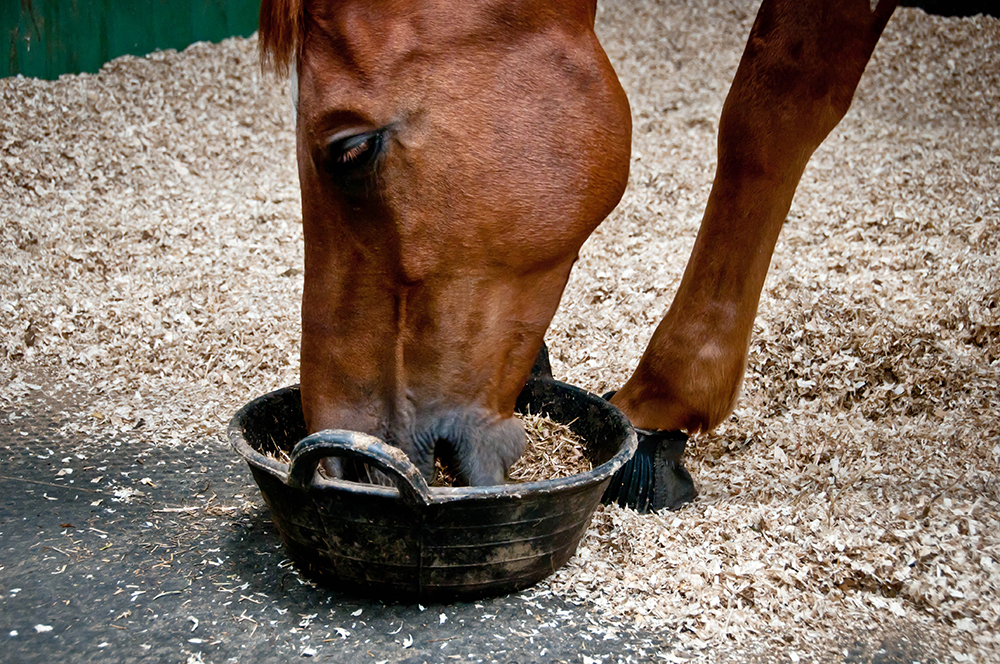In the world of equestrian care, feeding horses individually is a practice that stands out for its effectiveness in ensuring each horse receives the nutrition it needs. This approach is particularly beneficial in managing specific dietary requirements, health conditions, and behavioral issues. By understanding the importance of individualized feeding, horse owners can improve the well-being and performance of their equine companions.

The Importance of Individual Feeding
When it comes to feeding horses individually, it is crucial to recognize that each horse is unique. Just like humans, horses have different nutritional needs based on their age, weight, activity level, and overall health. Individual feeding allows for precise control over each horse’s diet, ensuring they receive the right balance of nutrients.
Understanding Nutritional Needs
Horses require a balanced diet that includes carbohydrates, proteins, fats, vitamins, and minerals. By feeding horses individually, owners can tailor the diet to meet the specific needs of each horse. For instance, a young, growing horse may require more protein and calcium for bone development, while an older horse may need a diet lower in calories to prevent weight gain.
Managing Health Conditions
Individual feeding is particularly beneficial for horses with health conditions such as metabolic disorders, laminitis, or obesity. These conditions often require specialized diets, and feeding horses individually ensures that dietary restrictions are strictly adhered to. This can prevent flare-ups of chronic conditions and promote overall health.
Behavioral Benefits of Individual Feeding
Feeding horses individually can also have positive effects on their behavior. In group feeding situations, some horses may become aggressive or anxious as they compete for food. By providing each horse with its own feeding space and time, these issues can be minimized, leading to a more harmonious herd dynamic.
Reducing Feeding-Related Stress
Individual feeding reduces stress and competition among horses, allowing them to eat at their own pace. This is especially important for timid or submissive horses that might not get enough to eat in a group setting. By ensuring each horse has access to its own food source, owners can help maintain a peaceful and stress-free environment.
Monitoring Intake and Health
When feeding horses individually, it becomes easier to monitor each horse’s food intake and overall health. This allows for early detection of changes in appetite or weight, which can be indicative of health issues. Regular monitoring and adjustments to the diet can help prevent problems before they become serious.
Implementing an Individual Feeding System
Setting up an individual feeding system requires careful planning and consideration. It involves creating separate feeding areas, determining appropriate portions, and selecting the right feed for each horse. Here are some steps to help you get started:
Designing Feeding Areas
Creating designated feeding areas for each horse is essential. These areas should be spacious enough to allow the horse to eat comfortably and should be separated to prevent food stealing or aggression. Consider using feed bins or troughs that are easy to clean and refill.
Determining Appropriate Portions
Accurately determining the appropriate portion sizes for each horse is key to effective individual feeding. This can be done by assessing the horse’s body condition score, weight, and activity level. Working with an equine nutritionist can provide valuable insights into the specific nutritional requirements of your horse.
Choosing the Right Feed
Selecting the right type of feed for each horse is crucial. Factors such as age, health status, and workload should be considered when choosing feed. For example, a performance horse may benefit from a high-energy diet, while a retired horse might need a lower-calorie option. Learn more about testing nutritional needs.
Challenges of Individual Feeding
While feeding horses individually offers numerous benefits, it also presents certain challenges. Owners must be prepared to invest time and effort into creating and maintaining an effective feeding regimen. Here are some common challenges and how to address them:
Time and Labor
Individual feeding requires more time and labor compared to group feeding. Owners may need to allocate additional time for feeding each horse separately and cleaning feeding areas. Hiring extra help or organizing a feeding schedule can alleviate some of the workload.
Cost Considerations
The cost of individual feeding can be higher due to the need for specialized feeds and supplements. However, the investment is often justified by the improved health and performance of the horses. Explore magnesium benefits.
Consistency and Monitoring
Maintaining consistency in feeding times and portions is crucial for the success of an individual feeding program. Regular monitoring of each horse’s condition and adjusting the diet as needed can prevent nutritional imbalances and ensure optimal health.
Conclusion
Feeding horses individually is a practice that offers numerous benefits, including tailored nutrition, improved health management, and reduced behavioral issues. While it requires a commitment of time and resources, the rewards of seeing your horse thrive make it worthwhile. By understanding and implementing individual feeding, you can provide the best possible care for your equine companions.

Frequently Asked Questions
Why is individual feeding important for horses?
Individual feeding is important because it allows for personalized dietary plans that meet the unique needs of each horse. It helps manage health conditions, optimize performance, and improve behavior by reducing competition and stress during feeding.
How can I determine the right diet for my horse?
Determining the right diet involves assessing your horse’s age, weight, activity level, and health status. Consulting with an equine nutritionist can provide valuable guidance. Regular monitoring and adjustments are also key to maintaining a balanced diet.
What are some challenges of feeding horses individually?
Challenges include increased time and labor, higher costs, and the need for consistent monitoring. However, these challenges are outweighed by the benefits of improved health and well-being for your horse. Learn about mineral blocks.
This article contains affiliate links. We may earn a commission at no extra cost to you.
